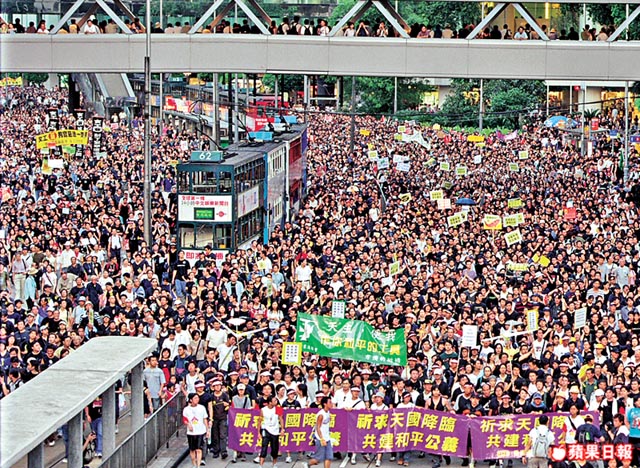Secretary for Justice Rimsky Yuen says it is unfair to accuse the Department of Justice of basing prosecution decisions on political motivations.
“I am a politically appointed official, so I can understand the criticism towards me. But my civil servant colleagues do not deserve the criticism,” he said during a Commercial Radio programme on Saturday.
“My colleagues in the prosecutions office do not give – or need to give – political consideration. Sometimes they are accused of making political prosecutions and they have even been sworn at in courts – I think it is unfair to them.”

The remarks came as the Department of Justice faces growing criticism against its decisions to press charges against pro-democracy figures.
Lawmaker “Long Hair” Leung Kwok-hung, activist Derek Lam and the former leaders behind the 2014 Occupy protests – all of whom are facing prosecution over different incidents – have accused the department of taking aim at the pro-democracy camp for political reasons.
But Yuen said the prosecutions office does not consider the political stance of defendants. “We simply look at the evidence,” he said, adding that his department has pressed charges against people from both the pro-government and pro-democracy camps.
Article 23
Yuen was also asked to comment on whether he felt pressured to legislate the controversial Article 23 anti-subversion law following Chinese President Xi Jinping’s speech on the importance of defending national sovereignty. Xi was speaking during his visit to the city earlier this month.

Yuen replied: “I don’t feel any pressure, because even before the Chair came, Article 23 has always been part of the Basic Law.”
The justice secretary said the ideal situation is for the Hong Kong government to legislate Article 23 on its own, so that the issue can be put to the public and the legislature for discussion.
“We need consensus in society,” he said. “And without consultation, it is difficult to reach a consensus.”
Yuen added that Xi made the remarks on the importance of defending national security and sovereignty while bearing in mind the One Country, Two Systems framework and the Basic Law.
“It is totally understandable for a country leader to approach issues from the national sovereignty perspective,” he said.

Yuen also spoke about the success of the One Country, Two Systems framework in allowing for the continuation of the common law system in Hong Kong.
However, he said, the different legal systems in Hong Kong and China need a “link.” He said they are connected through provisions in the Basic Law allowing China’s top legislature to interpret and amend Hong Kong’s mini-constitution.
“Some foreign judge[s] has said that it is a good mechanism,” Yuen added.
Yuen was a barrister before becoming Secretary for Justice in 2012. He faced calls for his resignation last year after Beijing interpreted an oath-related provision in the Basic Law, with critics saying Yuen failed to defend Hong Kong’s judicial independence.
